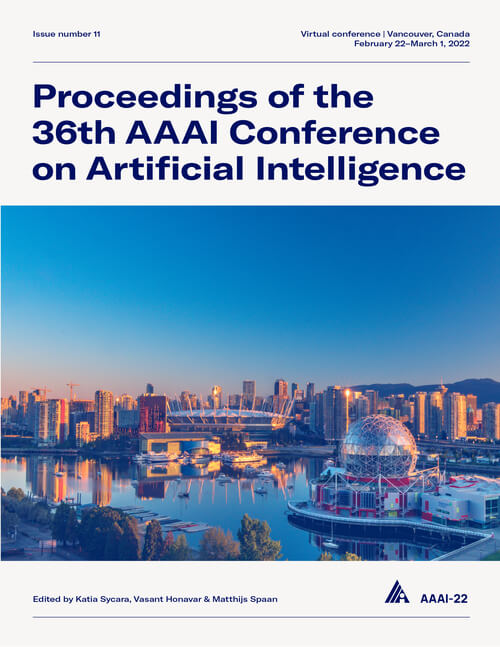Identifying Early Warning Signals from News Using Network Community Detection
DOI:
https://doi.org/10.1609/aaai.v36i11.21503Keywords:
Event Detection, Network Analysis, Natural Language ProcessingAbstract
The paper addresses the challenge of accelerating identification of changes in risk drivers in the insurance industry. Specifically, the work presents a method to identify significant news events ("signals") from batches of news data to inform Life & Health insurance decisions. Signals are defined as events that are relevant to a tracked risk driver, widely discussed in multiple news outlets, contain novel information and affect stakeholders. The method converts unstructured data (news articles) into a sequence of keywords by employing a linguistic knowledge graph-based model. Then, for each time window, the method forms a graph with extracted keywords as nodes and draws weighted edges based on keyword co-occurrences in articles. Lastly, events are derived in an unsupervised way as graph communities and scored for the requirements of a signal: relevance, novelty and virality. The methodology is illustrated for a Life & Health topic using news articles from Dow Jones DNA proprietary data set, and assessed against baselines on a publicly available news data set. The method is implemented as an analytics engine in Early Warning System deployed at Swiss Re for the last 1.5 years to extract relevant events from live news data. We present the system's architectural design in production and discuss its use and impact.Downloads
Published
2022-06-28
How to Cite
Le Vine, N., Boxer, E., Dinani, M., Tortora, P., & Das, S. (2022). Identifying Early Warning Signals from News Using Network Community Detection. Proceedings of the AAAI Conference on Artificial Intelligence, 36(11), 12378-12386. https://doi.org/10.1609/aaai.v36i11.21503
Issue
Section
IAAI Technical Track on Highly Innovative Applications of AI

